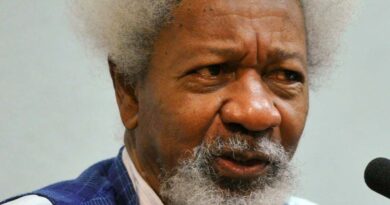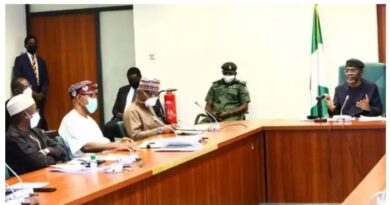President Tinubu Presents First Budget to NASS
President Bola Tinubu has presented his first budget to the National Assembly (NASS) for the 2024 budget estimates of N27.5trn.
The President arrived at the NASS Complex alongside his entourage including Vice President Kashim Shettima; the Chief of Staff to the President, Femi Gbajabiamila; Secretary to the Government of the Federation, George Akume; Minister of the Federal Capital Territory, Nyesom Wike; National Chairman of the All Progressives Congress (APC), Abdullahi Ganjude; amongst others.
The President’s request to bring the budget before a joint session of the Senate and the House of Representatives was approved by the upper chamber on Tuesday.
Additionally, in a letter dated November 27, 2023, Ali Umoru, Secretary of Research and Information for NASS, stated that the President will address the legislature today.
The 2024–2026 Medium-Term Expenditure Framework and Fiscal Strategy Paper, which the President sent to both chambers of the National Assembly approximately three weeks ago, suggested N26.1trn as the total expenditure profile for the 2024 fiscal year.
However, on Monday, the budget was revised upwards by N1.5 trillion to N27.5 trillion after the oil price benchmark was increased and the naira exchange rate lowered.
The Federal Executive Council (FEC) updated the MTEF and the Fiscal Policy to utilize an exchange rate of N750 to $1 and a benchmark crude oil reference price of $77.96 per barrel, Minister of Budget and Economic Planning Abubakar Bagudu told reporters at the State House on Monday.
Bagudu claims that the FEC also passed an Appropriations Bill for 2024 that calls for spending N27.5 trillion in total—a sum that is more than N1.5 trillion more than first projected.
The budget of N27.5 trillion is 26% greater than the budget for 2023 that the previous President Muhammadu Buhari declared in 2022.
Alongside this, the President wrote to NASS to request approval of a $8.6 billion and €100 million external financing plan for vital infrastructure, including power, roads, water, railroads, and health care.




